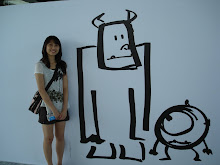What is literacy? I think this question I have been asked thousands of times in my doctoral study. However, I still try hard to figure it out what literacy is. Like most of people, I hold a narrow definition of literacy, which is, the ability of reading and writing. With this operational perspective, literacy means using language system to decode and encode texts and contexts. However, with the ability of decoding and encoding, can we call the person is literate? Many English learners have difficulties of understanding the content of written and spoken English because of the lack of culture background and life experience even each word can be decoded. How about “illiterate”? How can we call a person is illiterate? One of my grandmothers cannot read and write, but she can speak and understand the language and deal with everything in life. If being literate is being able to communicate, then my grandmother is not illiterate. From a cultural perspective, literacy means receiving and making meaning and developing an understanding of content and context. From this broader perspective, literacy is not only decoding the context, but taking and making meaning of the context. Further, critical literacy also emerges to propose a key feature of being literate, which is critiquing and recognizing socially constructed knowledge. Considering these dimensions of literacy, how can we determine a person is literate or not?
From The New London Group (1996), they specifically looked at literacy as a social practice and focus on domains of practice. We make meaning with understanding discourses, life experience, and personal meaningfulness. The language learning and being literacy is through social practice and interaction within Discourses. Cultural and linguistic diversity are resource for speakers and listeners to build their understanding. I think the ideas proposed by the new literacy are related to Constructivism. Even we know and understand the meaning of each word, the meaning and the knowledge differs from person and person. All meaning and knowledge is constructed from personal social interaction and personal experience. And through reflection and critical thinking, knowledge and meaning will become personally and socially constructed.
When talking about literacy and technology, how can we call a person is literate in computers or technology? I think a person knows how to operate the hardwares of technology is not enough for being literate. It is like decoding and encoding languages. Rather, the abilities in critically judging the credibility of online resource, social networking, and receiving and constructing knowledge are important features of being literate in this digital age.

Thanks, Ying Sin! (I'm with you about being asked to think about "what is literacy" about five billion times already.) You bring up some great points, and I can't stop thinking about your Grandmother. Perhaps thinking of literacies, rather than one literacy, is the best way to deal with these situations. She is certainly literate in communication skills, in speech, and oral communication. But she could certainly "pick up" another literacy of reading and writing if she found value?
回覆刪除Yes, I think that this brings up a good point about expanded definitions of literacy -- what isn't considered to be a literacy given our expanded definitions? Hang in there with me while we catch the LS folks up on the literacy readings! This is all new for most of them...
回覆刪除